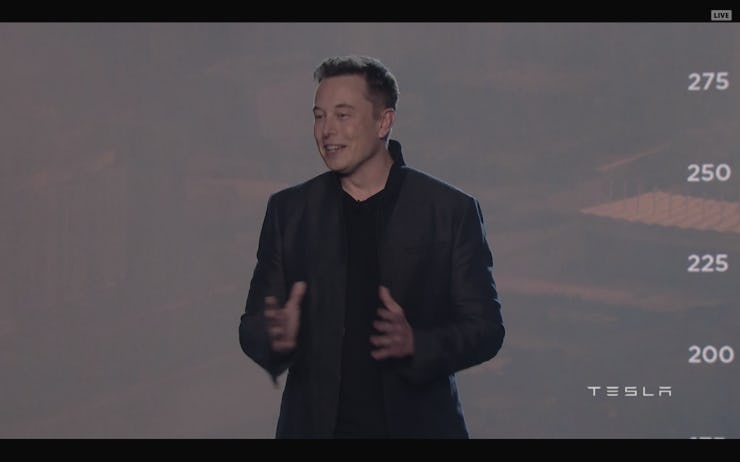Elon Musk's Twitter Suggests Tesla Wants to Disrupt California Tax Law Next
'Tax authorities tend to interpret things in their favor,' Musk wrote.

Elon Musk has waded into a debate over California tax law, and it could lead to Tesla taking an unconventional approach to cars once again. The dispute focuses on the fact that Tesla is charging sales tax for software that enables semi-autonomous driving features.
The discussion was sparked on Thursday when Alex Ryan, an engineer at Asana, notified Musk that Tesla was “wrongly” collecting sales tax on post-delivery orders for enhanced Autopilot and full self-driving. These features unlock varying levels of driver assist, with enhanced Autopilot costing $3,000 before delivery or $4,000 after, and full self-driving $5,000 before delivery and $7,000 after (on top of the cost of enhanced Autopilot).
“Apple and Google don’t charge us sales tax when we buy apps for our phones,” Ryan wrote. “Tesla shouldn’t treat us differently when we buy software for our cars!”
“Tax authorities tend to interpret things in their favor, but it sure sounds like you could be right!” Musk responded. “Will investigate.”
Ryan linked to regulation 1502 from California’s Sales and Use Tax Regulations, which states that:
The sale or lease of a prewritten program is not a taxable transaction if the program is transferred by remote telecommunications from the seller’s place of business, to or through the purchaser’s computer and the purchaser does not obtain possession of any tangible personal property, such as storage media, in the transaction. Likewise, the sale of a prewritten program is not a taxable transaction if the program is installed by the seller on the customer’s computer except when the seller transfers title to or possession of storage media or the installation of the program is a part of the sale of the computer.
Fans have argued about Tesla charging sales tax in numerous forum posts, confused over why the company charges for an over-the-air update. One Reddit user called “Hammie5150” responded to this outcry with “It’s taxifornia! What did you expect?”
Nick Rishwain, an expert in legal tech, suggested Ryan may have missed a key detail:
Tesla did not respond to Inverse’s request for comment.
Tesla Autopilot: should it be subject to tax?
Although the unlock is currently software-only, Tesla is expected to start shipping its own A.I. chip as part of the “Hardware 3” upgrade to enable point-to-point autonomous driving. Full self-driving consumers are expected to receive the chip for free, as a replacement for the Nvidia Drive PX 2.
Tesla has faced controversy in the past over the way it conducts business. Its direct sales model, which eschews the dealership so Tesla employees can explain its unique electric vehicles to consumers, has faced opposition from states like Indiana and Michigan. General Motors argued that the dealership model is favorable because owners will “never have to worry about driving to another state to buy, service or support their vehicles.”
The company may face legal opposition to some of its business decisions, but it’s attracted a dedicated fanbase that helped it reach record sales in the second half of 2018 with the Tesla Model 3. Tesla’s direct sales model is well-liked by its fans, so much so that last month’s decision to close most of its stores was met with outcry.
Tesla may join Microsoft and Nortel in the list of firms clarifying California’s tax law situation.